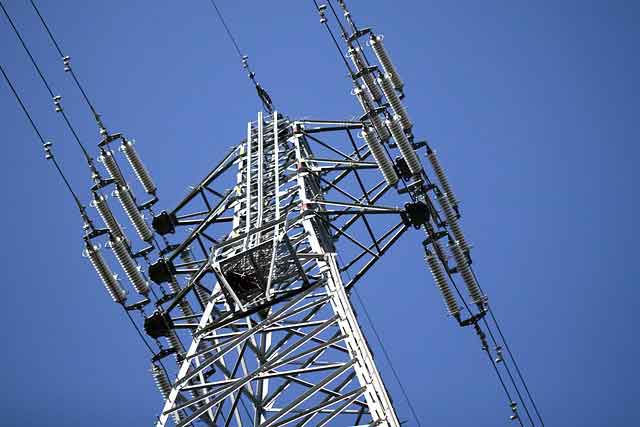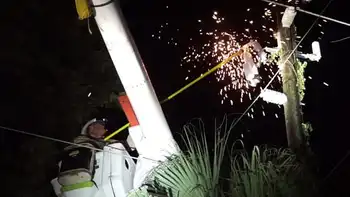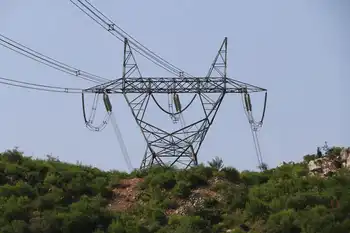Lay testifies he didn't lie to Enron investors, employees
HOUSTON, TEXAS - Looking and acting like a CEO who was once Houston's top civic leader, Enron Corp. founder Kenneth Lay firmly told a jury that he never was part of any conspiracy to commit fraud - and he contradicted key testimony blaming him in the energy giant's collapse.
"I don't think there ever was a conspiracy of any kind," Lay testified. He specifically denied lying to or intentionally misleading investors, employees or the public.
Lay said that when he gave up the chief executive post to Jeffrey Skilling in February 2001, he thought the company was in good shape. After Skilling suddenly resigned for personal reasons the following August, Lay - who had remained as chairman - said he retook the CEO reins still believing Enron was strong.
"The last thing I would do is step back in as CEO and pick up leadership of a conspiracy, having lived my whole life in such a way, doing... what I thought was right," Lay testified. If he hadn't come back, he added ruefully, he might not be on trial as a result of the company's bankruptcy.
Lay, 64, and Skilling, 52, are charged with conspiracy and fraud in the collapse of Enron in December 2001. Enron's bankruptcy cost investors billions and employees their jobs and retirement savings. Skilling spent two weeks on the stand denying wrongdoing. Lay was expected to spend several days telling his version of events.
Prosecutors allege that Lay and Skilling oversaw a conspiracy to exaggerate earnings and hide losses and debt, misleading investors, employees and the public in order to enrich themselves on a rising stock price.
The defendants blame the company's failure on thievery by former chief financial officer Andrew Fastow followed by a market panic, fueled in part by the Sept. 11 terror attacks. Fastow testified for the prosecution in exchange for a 10-year sentence. Lay and Skilling could spend decades in prison if convicted.
The start of Lay's testimony marked a big moment in the three-month-old trial. His wife, Linda; ex-wife, Judy; and several of his children were in the courtroom. News media, often dulled by the testimony, perked up. And Lay talked in folksy terms, sometimes chuckling and cracking jokes as he told a life story of rising from rural Missouri poverty to great wealth and power.
Lay spoke firmly and seriously when he contradicted assertions by prosecution witnesses.
Lay specifically denied Fastow's testimony earlier that the CFO had given him a memo listing problems at Enron. "That did not happen. Period," Lay said flatly.
Lay also disagreed with Enron whistleblower Sherron Watkins. He said she didn't state her suspicions about Enron's accounting practices in terms as strong as she suggested.
"Each time, she'd come back and say she was just concerned about the appearance of the transactions," Lay testified.
Nevertheless, Lay said, "I took it very seriously," and he said he had it appropriately investigated.
Lay specifically denied Watkins' suggestion that he started looking at legal issues involved in firing her after meeting with her.
"At any time did you... attempt in any way to get the ball rolling so Sherron Watkins could be fired?" defense lawyer George McCall "Mac" Secrest asked Lay.
"Absolutely not," Lay said. "I didn't know about that until way after Enron's bankruptcy."
He also disputed testimony that, before making positive statements about the company to analysts and employees, he'd heard lots of bad news - over-aggressive accounting, a broadband division "no longer viable," the need for a $2 billion write-down on international assets, that the retail division was a "train wreck."
Said Lay: "That, in fact, I know I would remember... The word train wreck tends to get your attention."
Although he blames Fastow, Lay said the CFO's misconduct alone was not enough to bring the company down.
Fastow's thievery came against a background of a declining stock market, an implosion in the high-tech industry of which Enron had become a part, and pressure by short-sellers and negative articles in The Wall Street Journal. And, in retrospect, the company should have worked to improve its credit rating to fight off a loss of confidence, Lay testified.
By October 2001, the company had become heavily involved in high- volume trading of energy, and when trading partners and investors and lenders lost confidence, "all that fed into a firestorm that we couldn't stop."
Lay took "full responsibility" for the failure, but not for criminal activity.
He said Enron's filing for bankruptcy was personally "devastating" and "incredibly painful.... Of course, clearly the most painful part of that was all of the employees and all of the hurt and destruction and pain that that was causing," he said.
"I've not only pursued the American dream, I've achieved it," Lay testified. "The last few years, I've also achieved the American nightmare."
Lay faces six counts of conspiracy and securities fraud in the current jury trial. After it goes to the jury, he faces a separate so-called bench trial before Judge Sim Lake without a jury on alleged personal banking violations. Skilling faces 28 counts including conspiracy, fraud, lying to auditors and insider trading.
Related News

Spain plans switch to 100% renewable electricity by 2050
MADRID - Spain has launched an ambitious plan to switch its electricity system entirely to renewable sources by 2050 and completely decarbonise its economy soon after.
By mid-century greenhouse gas emissions would be slashed by 90% from 1990 levels under Spain’s draft climate change and energy transition law.
To do this, the country’s social democratic government is committing to installing at least 3,000MW of wind and solar power capacity every year in the next 10 years ahead.
New licences for fossil fuel drills, hydrocarbon exploitation and fracking wells, will be banned, and a fifth of the state budget will be reserved for measures that can mitigate…




